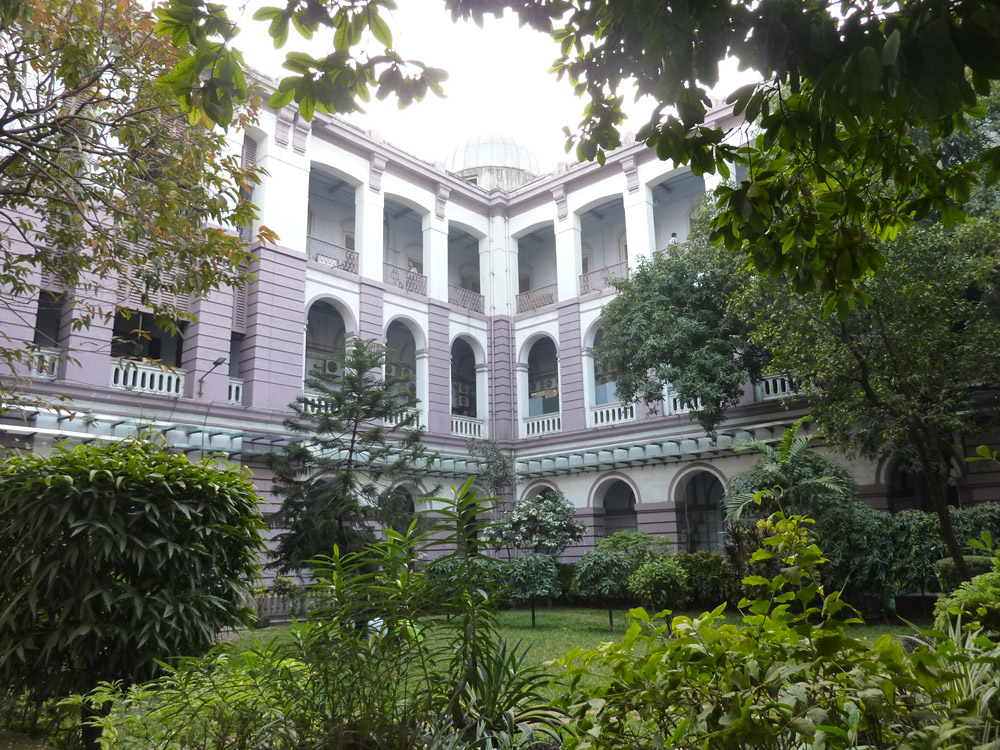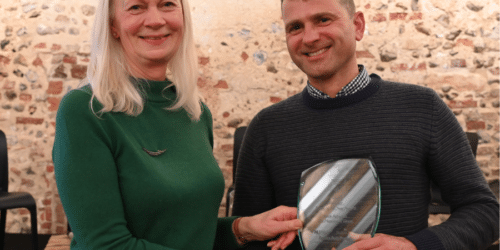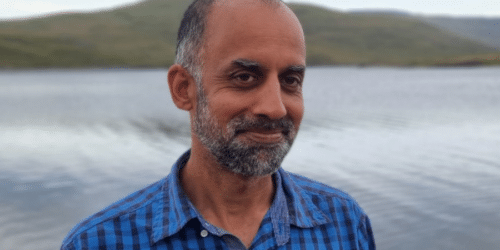
In January, writers Patrick Barkham, Vesna Goldsworthy and Anjali Joseph were accompanied by WCN’s Melanie Kidd, (Programme Coordinator) and Kate Griffin (Associate Programme Director) on a five day research and development trip to Kolkata, India. This marked the start of a partnership to form cultural connections between England’s first UNESCO City of Literature and East India’s educational and cultural centre.
Funded by Arts Council England and British Council the trip aimed to develop artistic links between the two countries, paving the way for a more substantial and sustainable project under ACE’s ‘Re-imagine India’ umbrella.
‘It’s very easy to inhale Kolkata’s rhythmic buzz and float down its smog-drenched streets.’
Melanie Kidd, Programme Coordinator at Writers’ Centre Norwich, shares her highlights from the trip below…
On Saturday the 9th January three writers, all with a strong connection to Norwich, along with myself and my colleague Kate, all met in Kolkata for a swift, exhilarating, petrol-fuelled, ride of India’s former capital. The colours of Kolkata are sweet and zingy, celebrating its vibrancy, and the rich, spicy smells of street food fight against the health-hazardous stench of exhaust fumes. Kolkata is busy. But it’s not chaotic. It’s very easy to inhale its rhythmic buzz and float down its smog-drenched streets.
Accompanying the writers nearly 5,000 miles on a smooth Air India flight, I spent much of my time simply wondering – why Kolkata? Once our extensive itinerary began, it soon became apparent why this Indian city was a one-stop-shop for literary inspiration and heritage!

Barely shaking off the jet lag, Monday morning saw our coffee-fuelled writers thrown into an eight hour literary symposium on ‘de-professionalisation’ at Presidency University. During the symposium I was inspired by the engagement and response of the students, darting between their lectures and the symposium, leaping from their seats to add ideas and opinions to the debate.
Later in the trip, during our literary walking tour our tour guide, Ramanuj, introduced us to Henry Louis Vivian Derozio in South Park Cemetery (well, his grave at least). Derozio was an Anglo-Indian radical thinker that in 1826, at the under-ripe-age of 17, became an English Literature teacher at Presidency, introducing the concepts of free thinking and learning through debate. During the symposium one of the students offered the opinion that universities should continue ‘opening their doors’ to other ideas, disciplines, training and values. I couldn’t help but think that Derozio would be ‘whooping’ in his grave, chuffed to bits that his teachings live on in those energetic students, challenging the ways in which they learn.
‘Ramanju’s words meant something different for me, echoing a wider sense of cultural renovation.’
As my interests lie heavily in social development and community projects, one of the most inspiring moments of the trip for me is when we went for lunch with Naveen Kishore, founder of Seagull Books. Seagull is a small publishing company with a large reputation. Alongside publishing, Seagull also deliver projects such as The Seagull School of Publishing, a heavily subsidised professional course in editing and book design for young people; and PeaceWorks, using the arts to promote social change. Both of these projects are what I would call ‘investment’ projects; investing in the education, creativity and social development of young people and the community. What an inspiring publishing company, leaping down the path of social impact, investing in Kolkata’s cultural personality and future.

Towards the end of the trip, our literary tour guide, Ramanju, proudly said he believed that the people of Kolkata were less financially driven than in other parts of India, and more influenced by their passions. I had met several Bengalis on my trip that confirmed this, who had studied or trained to be scientists, mathematicians or accountants, but had dropped it all to follow a less financially driven career in culture and the arts. Something else that Ramanju had said got me thinking: ‘Everything in Kolkata can be fixed’. He was referring to the industrious nature of Kolkata, where everything that had been made by human hands could be fixed or changed by human hands. Nothing from the past goes to waste. Ramanju’s words meant something different for me, echoing a wider sense of cultural renovation.
‘It is city that is comfortable in its skin.’
That last evening those words stuck in my mind, as we watched the Apeejay Literary Festival’s ceremonious launch; a festival that revitalises spaces entrenched in Kolkata’s cultural heritage using new writing and ideas. Kolkata was by no means slow-paced. However, it had a strong sense of reflection and pride. It is city that is comfortable in its skin; proud of its past which shapes its present, and inspiringly excited about its future.
Although our visit to Kolkata was brief, I took home the sense that culture is a ‘door way’; opening up a place for others to explore, unlocking a past, providing a path of opportunity and letting in other cultures and influences. The other thing I took home? A mountain of books from Seagull’s spider-web of a book shop! If you ever make it to Kolkata, take an extra suitcase for book shopping. It’s not called a literary city for nothing!
You may also like...
‘The Meaning of Geese’ wins East Anglian Book of the Year 2023
The debut book from Norfolk conservationist Nick Acheson is crowned the overall winner of the East Anglian Book Awards

16th February 2024
Announcing the category winners for the 2023 East Anglian Book Awards
Discover the six winning titles for the East Anglian Book Awards 2023

18th January 2024






